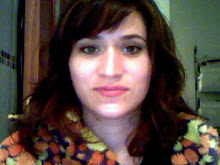Op-Ed by Hamad Al Sanan at Al-Watan Daily: "Taking Pride in Being Muslim"
This statement means that the MP actually meant to say that she belongs to a sect which is better all other sects. Some people resort to flattery to hide a certain fact for a while but soon the facts appear on the surface. This fact shocked colleague Fuad AlـHashem who wants Kuwaiti citizens to be just Kuwaitis without any sectarian or tribal affiliations. I think that AlـHashem also wonders how a graduate from the Colorado University who has specialized in political science can issue such a statement. What sort of reactions can we expect from the general public? Has this statement got anything to do with patriotism?
This female Shiite MP might have the right of being proud of being Shiite but I think that announcing this in public only strengthens sectarianism. A friend of mine has told me that his son''s classmate in the second grade asked him: "Where do you place your hands when you perform prayers?" I wonder how such an innocent child can ask this question. Ali AlـMatouk has published a statistical report which shows that there are 700 million Shiites in the Islamic world. He had earlier published a study indicating that Shiites represent 60 percent of the Kuwaiti population. I don''t actually care about such inaccurate statistics, but the question is: "What is the aim behind publishing such statistics at such a volatile time?"
When a certain community introduces exaggerated statistics they aim at proving that they are not a minority and thus demand more rights or even selfـgovernance as the case of the Chinese community in Malaysia. I don''t think that Ali AlـMatouk considers himself belonging to one of such communities. This talk also strengthens sectarianism.
I''m not calling for Shiites to become Sunnis or vice versa but I''m calling for an end to the conflict existing between the two doctrines because such conflicts weaken Islam. Let us all agree on how to differ but not how to fight each other. We should strengthen our sense of belonging to this land. Let us be proud of being Kuwaitis and not for belonging to the Sunni or Shiite sects.
2 a : marked by stateliness : magnificent b : giving reason for pride : glorious
3 : vigorous, spirited
4 chiefly British : raised above a surrounding area



